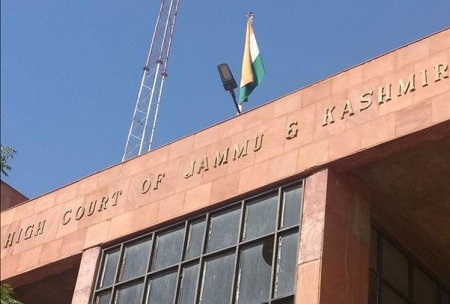“Right to Property a Constitutional Right”: J&K&L High Court Orders 10 Lakh Compensation in `Illegal` Deprivation if Land Case
Underscoring that the right to property is a Constitutional right that has been acknowledged to be akin to a fundamental right and a basic human right, the Jammu and Kashmir and Ladakh High Court recently directed the J&K government to pay Rs. 10 lakh (€11,881.40) as compensation to the petitioners in a case of illegal deprivation of land.
Ordering thus, the Bench of Chief Justice Pankaj Mithal and Justice Javed Iqbal Wani further stressed that no one can be deprived of his property without following the procedure prescribed in law and payment of adequate compensation.
Essentially, the bench was dealing with the plea of one Krishan Singh and another who were the owners of a piece of land with nine walnut trees in Village Batroo, Tehsil Pogal Paristan (Ukhral) in District Ramban, and the same was utilized by the Government in the year 2012–13 for the construction of a multi-purpose community hall.
It was their plea that the acquisition of the aforesaid land was without any lawful authority and no consent of the petitioners was taken to use it and that the petitioners were not even paid any compensation.
It was their further plea that to date no declaration under Section 6 of the State Land Acquisition Act, 1990 had been issued and published with regard to the acquisition of the property.
On the other hand, the respondents contended that the matter regarding completion of acquisition proceedings stands submitted to the Government and they would be paying the compensation once the proceedings are complete and the final award is pronounced.
Court`s observations
At the outset, the Court noted that the Right to Property/Land used to be a fundamental right, but now it has been recognized as a constitutional right vide Article 300A of the Constitution of India.
The Court further observed that the proceedings for acquisition of any land commence with the issuance of notification under Section 4 of the Act proposing to acquire the land for a public purpose and once the Government is satisfied on consideration of the report of the Collector that the land is needed for a public purpose, it directs for issuance of a declaration under Section 6 of the Act.
Further, noting that in the instant case, to date no declaration under Section 6 of the Act has been issued and published, meaning thereby that the land has not been finally acquired and there is simply a proposal to acquire the said land, the Court concluded thus:In such circumstances, when the land has not been finally acquired, the respondents could not have taken possession of the said land and utilized it for construction purposes. The action of the respondents in constructing a community hall on the land in question without waiting for the final acquisition of land and in the absence of the invocation of the urgency clause, is nothing but an abuse of the process of law depriving the petitioners from their valuable right to possess property.
Against this backdrop, the Court directed the respondents to forthwith distribute the estimated cost of acquisition of the aforesaid land which has been worked out to be ₹15,00,000/- within a period of one month.
Lastly, the Court ordered a compensation of Rs. 10 lakh (1 million) and directed the respondents to conclude the acquisition proceedings by issuing a declaration under Section 6 of the Act and pronouncing the final award within a period of three months.
See case: Krishan Singh and another v. State and others, 2022 LIVELAW (JKL) 1
Photo: Façade of the Kammu and Kashmir High Court. LiveLaw.in.
| Themes |
| • Farmers/Peasants • Land rights • Legal frameworks • Local • National |














